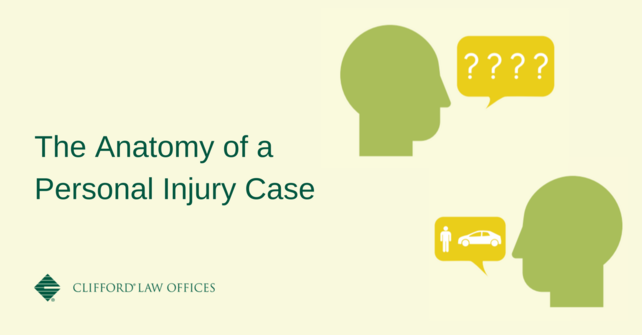Personal injury law allows an injured person to sue in a private action, known in the legal community as a tort action. This area of law also includes wrongful death. If you are successful, you can recover money damages for a number of reasons: medical bills, lost income and other economic and non-economic damages. The following provides information on how a personal injury case works and what to expect:
1. Determine if You Have an Injury Case
Find a qualified personal injury lawyer. You want a lawyer with an established firm, a proven track record and expertise in personal injury. When you meet live or via phone, he or she will most likely need to collect information including a) facts about your medical treatment, b) others involved in the accident and c) potential witnesses. If the lawyer thinks you have a case, he or she will discuss your legal options with you.
2. Starting the Case: Initial Court Papers
The legal papers filed in court at the beginning of a lawsuit are called pleadings. They differ based on the context of your case:
Complaint: Outlines the plaintiff’s case against the defendant
Summons: Notice to the defendant of the complaint filed against that party and an order to respond to the complaint
Answer: The defendant’s response to the complaint
3. Fact Finding: Discovery
Discovery is the written or oral process by which all relevant facts and documents are disclosed to the other side prior to trial. Types of Discovery include:
Interrogatories: A set of generic or specific written questions; Deposition: An oral Q & A session transcribed by a court reporter.
At this point in the process, it’s possible for your case to be resolved before it goes to trial.
Resolution Before Trial
Prior to trial, there are several actions that can help speed up the processing of issues. One step is the use of pretrial motions; the other is negotiated settlement.
4. Resolution Prior to Trial: Court Motions
If your lawyer files a pretrial motion, it is possible to end your case before the trial. Types of Motions include:
Motion to Dismiss: A formal request for a court to dismiss a case
Summary Judgment: When the facts are not in dispute and a trial is unnecessary
Motion for Default Judgment: Failing to cooperate within the allotted time annuls the defendant’s power to dispute whether he or she is liable to the plaintiff; the only question is how much the plaintiff should receive in damages
5. Resolution Prior to Trial: Settlement Negotiation
The majority of legal claims arising from accidents or injuries are resolved through a negotiated settlement among the parties. In exchange for the payment of an agreed-upon sum from the defendant or an insurance company, the plaintiff gives up the right to pursue further legal action in connection with the accident or injury.
Settlement can be achieved by a mediation in a pre-trial meeting with the court.
6. In Court: What Happens in Trial
A trial is an opportunity for the plaintiff and the defendant to argue the case. When both sides have presented their arguments, the judge or jury examines the evidence and considers whether to find the defendant liable for the plaintiff’s claimed injuries, and if so, to what extent.
Trial – A Play By Play
Choosing a Jury: Potential jurors are questioned and selected
Opening Statements: Initial dialogue from the attorneys Witness Testimony and Cross-Examination: Evidence and arguments are presented to the jury, during which witnesses may be called and questioned
Closing Arguments: The attorneys sum up the case, recapping evidence in a light favorable to their respective positions
Jury Instruction: The judge gives the jury a set of legal standards it will need to decide whether the defendant should be held accountable
Jury Deliberation: The jurors attempt to agree on whether the defendant should be held liable for the plaintiff’s claimed injuries, and if so, appropriate compensation
Verdict: Once a decision is reached, the jury foreperson informs the judge, who announces the verdict in open court
If the losing party feels they did not receive a fair trial, they can choose to appeal the case to the next level.
The Appeal Process
If the defendant lost at trial and owes the plaintiff money, interest accrues from the time of the verdict as provided for by statute. In Illinois, that court is known as the Appellate Court. A party can try one more appeal to the Illinois Supreme Court, but that court is not under a duty to accept the case. Only one right to an appeal exists.
Contact Clifford Law Offices
Clifford Law Offices is a Chicago personal injury law firm that regularly and successfully handles personal injury and wrongful death cases. Our attorneys have the experience to protect your interests and help you seek fair compensation for your injuries or the loss of a loved one. Learn why we are the right firm.
If you’d like to receive a free, confidential consultation about your case, please call our Chicago personal injury law firm at (800) 899-0410.

